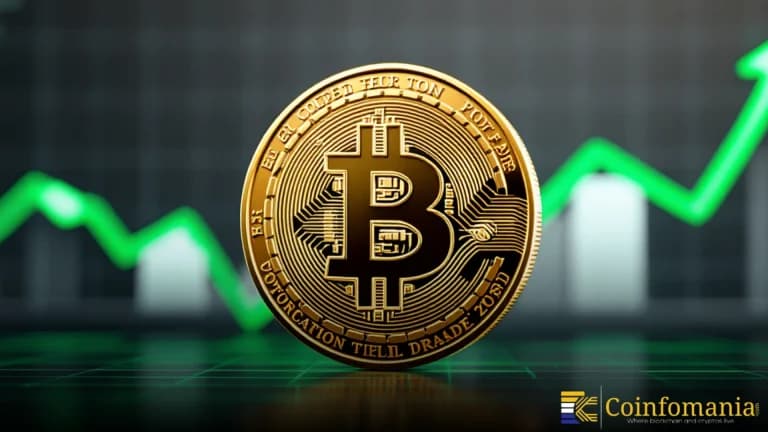Cryptocurrency Regulations in the United Arab Emirates (UAE)
Crypto adoption is welcomed in the UAE as long as there is strict bureaucratic oversight. But this framework is different from one jurisdiction to another from Dubai, Abu Dhabi or the Mainland of UAE. This flexible approach has attracted other major exchanges and blockchain businesses. All businesses and investors should grasp how these rules change […]

Crypto adoption is welcomed in the UAE as long as there is strict bureaucratic oversight. But this framework is different from one jurisdiction to another from Dubai, Abu Dhabi or the Mainland of UAE. This flexible approach has attracted other major exchanges and blockchain businesses.
All businesses and investors should grasp how these rules change between different geographic regions since they also differ in their compliance standards and tax structures along with their licensing requirements. SCA represents the premier regulatory body while VARA (Virtual Assets Regulatory Authority) administers in Dubai alongside Dubai Financial Services Authority (DFSA) which operates within Dubai International Financial Centre (DIFC) and Financial Services Regulatory Authority (FSRA) works in Abu Dhabi Global Market (ADGM).
Historical Context
In the UAE, there was little outright ban of cryptocurrency but the country took a cautious stance. Over time, its position evolved.
The Emirates Blockchain Strategy 2021 established a big target by planning to move half of government transactions to blockchain technology. VARA started operations in 2022 when Dubai Law No. 4 created it as the first virtual asset regulator in the Middle East. Following their initial stand, the UAE leaders adopted clear rules, which resulted in people starting to use cryptocurrencies more.
Regulatory Framework
Economic activity in the UAE is regulated based on jurisdiction:
Mainland UAE (Securities and Commodities Authority – SCA):
Recognizes crypto as electronic records of value. One also requires licensing for exchanges and wallet services. AML rules are strict.
Dubai (Virtual Assets Regulatory Authority – VARA):
Regulates VASPs. The largest amounts of licensing fees range between AED 40,000 to AED 100,000. Specifies activities such as custody, exchange and brokering.
Dubai International Financial Centre (Dubai Financial Services Authority – DFSA):
allows investing of institutional money in approved tokens, such as Bitcoin, Ethereum, XRP, Toncoin. Licensing fees range from $2,000 to $70,000.
Abu Dhabi Global Market (Financial Services Regulatory Authority – FSRA):
Provides licenses to qualified firms. Tokens are categorized by their function and, as such, AML compliance is mandatory.
AML/KYC rules are applicable in all of the zones. To deal with the Travel Rule by the Financial Action Task Force (FATF), businesses must appoint experienced Money Laundering Reporting Officers (MLROs), keep records for 8 years, and follow the rule for transactions above AED 3,500.
Crypto earnings are not taxed by capital gains or income tax in Dubai. It is the SCA who regulates ICOs as securities. Also, STOs have to undergo a series of strict disclosure requirements.
UAE Crypto Policies
The UAE actually pushes crypto use for both personal or business use, especially in Dubai and its financial free zones. Binance, Bybit, OKX and Kraken are major exchanges that work legally.
However, crypto mining is not explicitly outlawed (since there are no dedicated laws on crypto mining) and it is mostly carried out within free zones. While the government doesn’t promote it heavily, there aren’t any bans.
UAE officially joined the mBridge initiative in January 2024 and made its first cross-border CBDC transaction by moving AED 50 million with China, Hong Kong and Thailand.
Failing to adhere to the regulations may lead to fines, temporary closure or loss of a license.
UAE’s Approach to Crypto Innovation
The sandboxes for blockchain business, such as Dubai International Financial Centre (DIFC), Abu Dhabi Global Market (ADGM), and Ras Al Khaimah Digital Assets Oasis (RAK Digital Assets Oasis) serve to foster innovation in UAE.
In the retail and tourism sectors, especially in Dubai, crypto is slowly making way. From making digital payments at business, to the growth of Web3 firms worldwide.
The government has initiatives that support blockchain development, like the Emirates Blockchain Strategy or partnerships like that with the HBAR Foundation.
Notable Challenges and Issues
An ongoing challenge is inconsistency in regulations between emirates. Some other areas don’t have a high degree of clarity, while ADGM and DIFC have more mature sets of rules.
AML and KYC compliance is still difficult owing to decentralized platforms and anonymous transactions.
Existing crypto perceptions among the public are generally positive. Trust is above all strengthened by government support, but traditional institutions are cautious.
Future Outlook and Key Regulatory Trends
In 2023, Cabinet Resolution No. (111) was issued to implement consistent licensing standards of VASPs in the UAE.
Additionally, the same year tokens like Toncoin and XRP of DIFC were approved, which means the list of recognized assets will continue to increase.
This is likely to result in harmonization of regulations across the UAE’s jurisdictions. Given its central role as a connector between Asia, Africa and Europe, it will have a big opportunity to shape crypto trends regionally and globally.
Conclusion
The UAE has a very strong but flexible crypto framework that both protects investors and allows for innovation. It has become a strategic hub for the blockchain ventures due to multiple regulators, no crypto taxes there, and a supportive ecosystem. With regulations evolving, staying informed is key.
Frequently Asked Questions (FAQs)
1. Is cryptocurrency legal in the United Arab Emirates?
There is, and it’s regulated differently by the three regulatory bodies, namely Dubai, DIFC, and ADGM.
2. Do you have to get a license to do crypto business in the UAE?
Yes. There are licenses, which are issued by the Virtual Assets Regulatory Authority (VARA) in Dubai, the Dubai Financial Services Authority (DFSA) within the Dubai International Financial Centre (DIFC) and also by Financial Services Regulatory Authority (FSRA) within the Abu Dhabi Global Market (ADGM).
3. Is crypto taxed in the UAE?
Yes, there is no gain or business income tax in Dubai (and many free zones) for crypto.
4. What does VARA regulate?
In Dubai, all activities in regard to crypto exchanges, brokerages, and custody services are regulated by the Virtual Assets Regulatory Authority (VARA).
5. Are ICOs and STOs allowed?
Yes. Both, ICOs and STOs, are categorized as securities that are regulated and require a disclosure and approval.
6. Which foreign crypto companies can work in the UAE?
Yes. The recognized local regulatory bodies license and regulate most of the global exchanges.
7. Is mining legal in the UAE?
Mining is not banned. It is allowed there and even in the free zones, but it is not popularized.
8. What are the AML/KYC rules?
Long term record keeping and strict rules of both AML and KYC are in effect, but guidelines of FATF are enforced.
9. Has the UAE developed a CBDC?
The UAE is also a part of mBridge project and back in 2024, it made the first transaction of its CBDC.
10. What tokens are approved by their regulators in UAE?
For instance, in the likes of DIFC, they include Bitcoin, Ethereum, XRP, Litecoin and Toncoin.
Follow us on Google News
Get the latest crypto insights and updates.
Related Posts

On Chain Data Shows Bitcoin Markets Calm Despite Venezuela Tensions
Shweta Chakrawarty
Author

Memecoins Surge After Holidays as PEPE, POPCAT, and MOG Lead Rally
Triparna Baishnab
Author

Chinese Oil Stocks Slide as U.S. Capture of Maduro Sparks Energy
Triparna Baishnab
Author